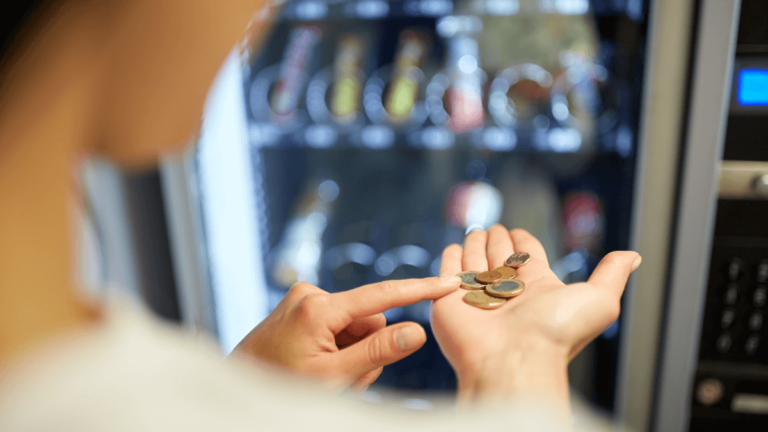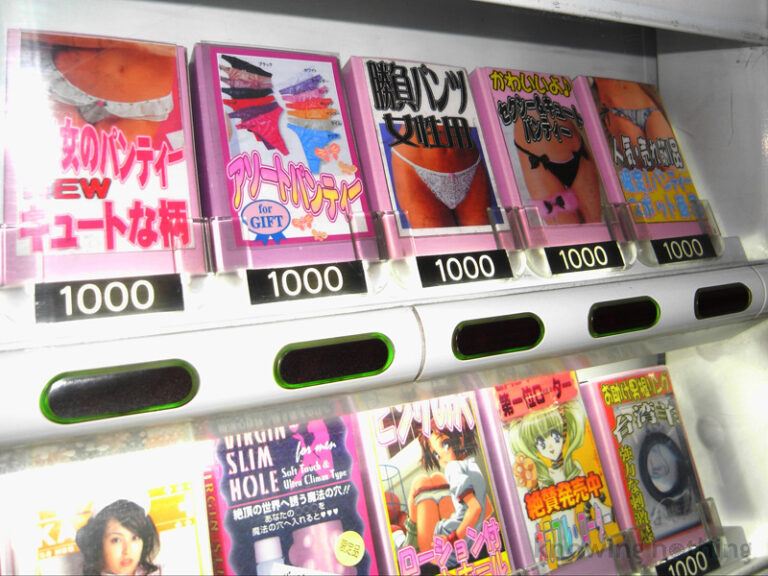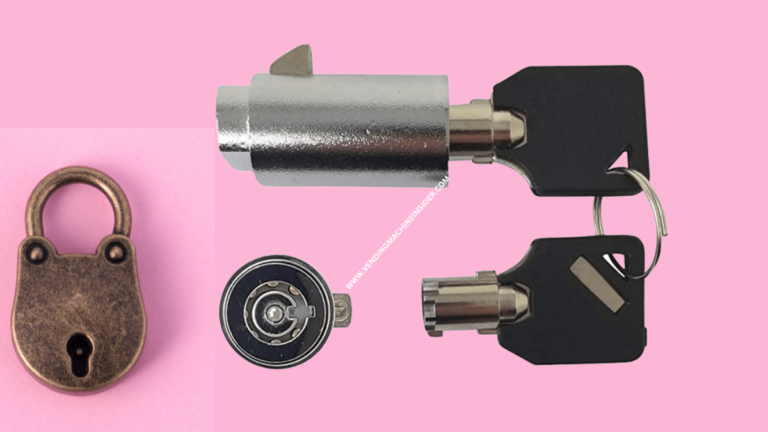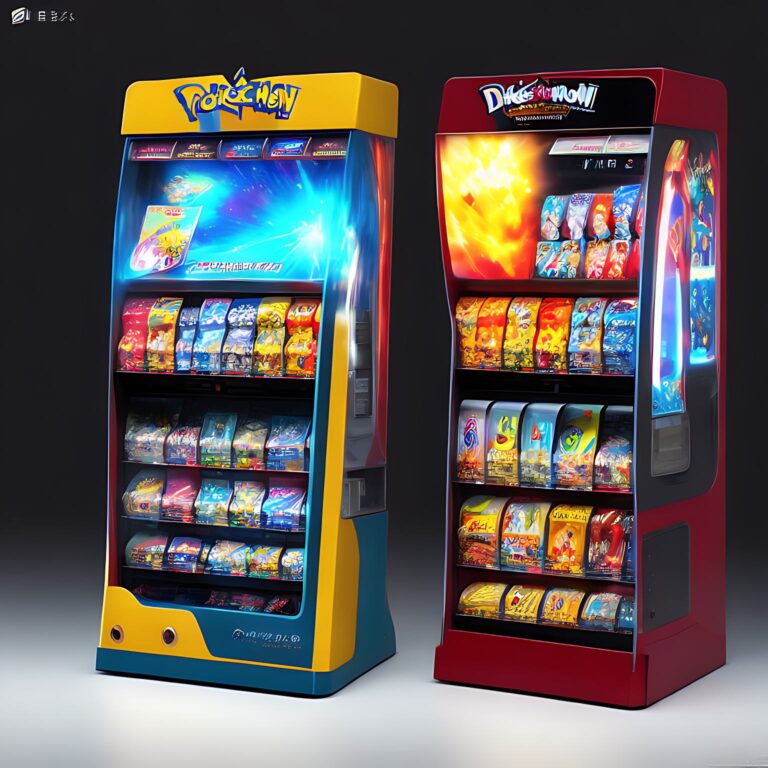Whale Meat Vending Machines: How to Use & Pricing 🐋
You’re not going to believe this, but Japan has introduced whale meat vending machines to push sales!
Yes, you read that right – vending machines that sell whale meat.
The Kujira Store, an unmanned outlet, has recently opened in the port town of Yokohama near Tokyo, and houses three machines for whale sashimi, whale bacon, whale skin, and whale steak. Prices range from 1,000 yen, or $7.70, to 3,000 yen, or $23.
How Whale Meat Vending Machines Work
If you’re curious about how these vending machines work, you’re not alone. Here are some key points to help you understand:
The Vending Machine Design
Whale meat vending machines are designed to keep the meat at a temperature that is safe for consumption. The machines are equipped with refrigeration units that ensure the meat stays fresh. The machines are also designed to be user-friendly, with clear instructions and labels in both Japanese and English.
The machines themselves are about the size of a large refrigerator and are made of durable materials that can withstand the elements. They are also equipped with security features to prevent theft and vandalism.
The Whale Meat Quality Control
Whale meat sold in vending machines is subject to the same quality control standards as other food products in Japan. The meat is inspected by government officials to ensure that it is safe for consumption and meets certain quality standards.
The whale meat sold in vending machines is sourced from whales that have been legally caught by Japanese whaling companies. The companies are required to follow strict regulations and quotas to ensure the sustainability of whale populations.
Overall, whale meat vending machines are a convenient way for people to purchase and enjoy this traditional Japanese food. Whether you’re a fan of whale meat or just curious about this unique vending machine concept, they are definitely worth checking out!
Price of a Whale Meat Vending Machine
- 1,000 to 3,000 yen
- $7.70 to $23 in US dollars
The products mainly contain whales caught in Japan, a country that has long been known for its whaling industry.
READ: How to Order Car Vending Machine In Japan: Step-by-Step
Japan Whale Meat Vending Machine
Have you heard about the latest craze in Japan? Vending machines selling whale meat have been popping up all over the country! These machines are part of an effort to promote the sale of whale meat, which has been declining in popularity in recent years.
The Kujira Store, an unmanned outlet in Yokohama, houses three machines that sell various types of whale meat, including sashimi, bacon, skin, and steak.
While some people may find the idea of buying meat from a vending machine strange, these machines have actually been around in Japan for quite some time. In fact, you can find vending machines selling everything from fresh fruit to hot meals!
One of the benefits of buying meat from a vending machine is that it’s incredibly convenient. You can get your hands on some fresh whale meat without ever having to leave your neighborhood. Plus, the machines are open 24/7, so you can satisfy your cravings any time of day or night.
However, it’s worth noting that the sale of whale meat is a controversial issue. While whaling is legal in Japan, it has been criticized by many people around the world who believe that whales should be protected. Some countries, including the United States, have even imposed sanctions on Japan for its whaling practices.
So, what do you think about Japan’s whale meat vending machines? Would you be willing to try some fresh whale meat from a vending machine? Or do you think that the sale of whale meat should be banned altogether?
How to Use a Whale Meat Vending Machine
So, you’ve stumbled upon a whale meat vending machine and are curious about how to use it. Don’t worry, it’s easy! Just follow these simple steps:
- First, take a look at the available options and decide what you want to buy. You’ll find a variety of whale meat products, such as whale sashimi, whale bacon, whale skin, whale steak, and canned whale meat. Prices range from 1,000 yen, or $7.70 to 3,000 yen, or $23.
- Next, insert your money into the machine. Most vending machines accept coins and bills, but some may only accept coins, so make sure you have the right amount of change.
- Select the product you want to purchase from the machine’s display screen.
- Once you’ve made your selection, the machine will dispense the product. Make sure to grab it quickly, as some machines have a time limit for retrieving your purchase.
- Finally, enjoy your whale meat! You can eat it raw, cooked, or canned, depending on the product you purchased. Just make sure to follow proper food safety guidelines.
It’s important to note that whale meat vending machines are currently only available in Japan, where whale meat is still legal to sell and consume.
While some may have ethical concerns about consuming whale meat, it’s a popular delicacy in Japan and has been a part of their culinary culture for centuries.
The Controversy Surrounding Whale Meat Vending Machines
Whale meat vending machines have sparked a heated debate around the world. While some people see them as a convenient way to buy a traditional delicacy, others view them as a threat to the environment and animal rights.
Let’s take a closer look at the controversy surrounding these machines.
The Environmental Impact
Whale meat vending machines are controversial because they promote the consumption of a species that is already endangered. Whales play a vital role in the marine ecosystem, and their decline can have far-reaching consequences.
The process of hunting and processing whales can lead to pollution and waste, which can harm other marine life.
According to a study published in the journal Marine Policy, “the environmental impact of whaling is significant, with effects ranging from the depletion of whale populations to the release of pollutants into the ocean.”
The study also found that the carbon footprint of whaling is much higher than that of other forms of meat production.
The Animal Rights Debate
Animal rights activists have long opposed whaling, arguing that it is cruel and unnecessary. They criticize the use of whale meat vending machines as a way to promote the consumption of a product obtained through the killing of sentient beings.
Some activists have even gone so far as to vandalize the machines or protest outside of them.
On the other hand, proponents of whaling argue that it is a traditional practice with cultural significance.
They claim that it is no different from eating other types of meat, such as beef or pork. They also point out that the whale populations being hunted are not endangered and that the practice is regulated by international law.
In conclusion, the controversy surrounding whale meat vending machines is multifaceted. While some people view them as a harmless novelty, others see them as a threat to the environment and animal rights.
Ultimately, the decision to consume whale meat is a personal one that should be made with consideration for the impact it has on the world around us.
The History of Whale Meat Vending Machines
Talking about unique vending machines, have you heard of whale meat vending machines in Japan? Yes, you read that right! Japan has been known for its love of whale meat, and vending machines have made it even easier for people to get their hands on it.
But how did these vending machines come about? Let’s take a closer look at the history of whale meat vending machines.
Whale Meat in Japanese Culture
Whale meat has been a part of Japanese culture for centuries. In fact, it was a common food source during World War II when other sources of protein were scarce. Even today, it is considered a delicacy in some parts of Japan, and many people enjoy it as a traditional dish.
However, with the decline in the number of whales due to overfishing, the sale of whale meat has become more regulated in recent years.
The Rise of Whale Meat Vending Machines
Despite the regulations, some companies in Japan have found a way to make whale meat more accessible to the public – through vending machines.
The first whale meat vending machine was introduced in 2018 by a company called Yoichi Fisheries Co. Ltd. Since then, other companies have followed suit, and there are now several locations across Japan where you can find these unique vending machines.
So, how do they work? The vending machines are stocked with various cuts of whale meat, including sashimi, bacon, and skin.
Customers can choose what they want, and the machine will dispense the meat in a vacuum-sealed package. It’s quick, convenient, and perfect for those who want to try whale meat but don’t want to go to a restaurant or market to buy it.
However, the rise of whale meat vending machines has not been without controversy. Some conservationists argue that the sale of whale meat is unethical and that it promotes the hunting of endangered species. Others argue that it is a cultural tradition that should be respected.
Regardless of where you stand on the issue, there’s no denying that whale meat vending machines are a unique and interesting part of Japanese culture. Whether you’re a lover of traditional Japanese cuisine or just want to try something new, these vending machines are definitely worth checking out.
The Future of Whale Meat Vending Machines
Whale meat vending machines have caused quite a stir since their launch earlier this year. While they have been successful in promoting sales and expanding the market for whale meat, the future of these machines is still uncertain.
We will explore the potential for expansion and the public opinion shift toward whale meat vending machines.
The Potential for Expansion
The success of whale meat vending machines in Japan has opened up new possibilities for expansion. With the increasing demand for sustainable and locally-sourced food, these machines could potentially become a popular way for consumers to access a variety of meats and other products.
The convenience and novelty factor of these machines could also attract tourists and increase revenue for local businesses.
There are also concerns about the sustainability of the whaling industry and the ethics of consuming whale meat. Will these issues limit the expansion to certain regions or countries where whaling is legal and socially accepted?
The Public Opinion Shift
Whale meat has long been a controversial food item due to its association with whaling and conservation efforts. However, the launch of these products has sparked a shift in public opinion towards this meat. According to a recent survey, 60% of Japanese consumers are interested in trying whale meat from these machines.
While there are still vocal opponents of whaling and the consumption of whale meat, the success of these machines suggests that there is a growing market for this product.
As more consumers become aware of the convenience and quality of it is possible that the negative stigma surrounding this meat will continue to diminish.
Overall, the future of this business is still uncertain. While there is potential for expansion and a shift in public opinion, there are also concerns about the sustainability and ethics of the whaling industry.
Only time will tell how these machines will continue to shape the market for whale meat and other sustainable food products.






